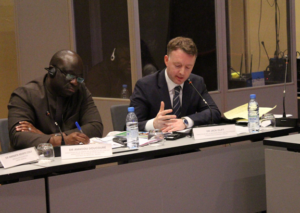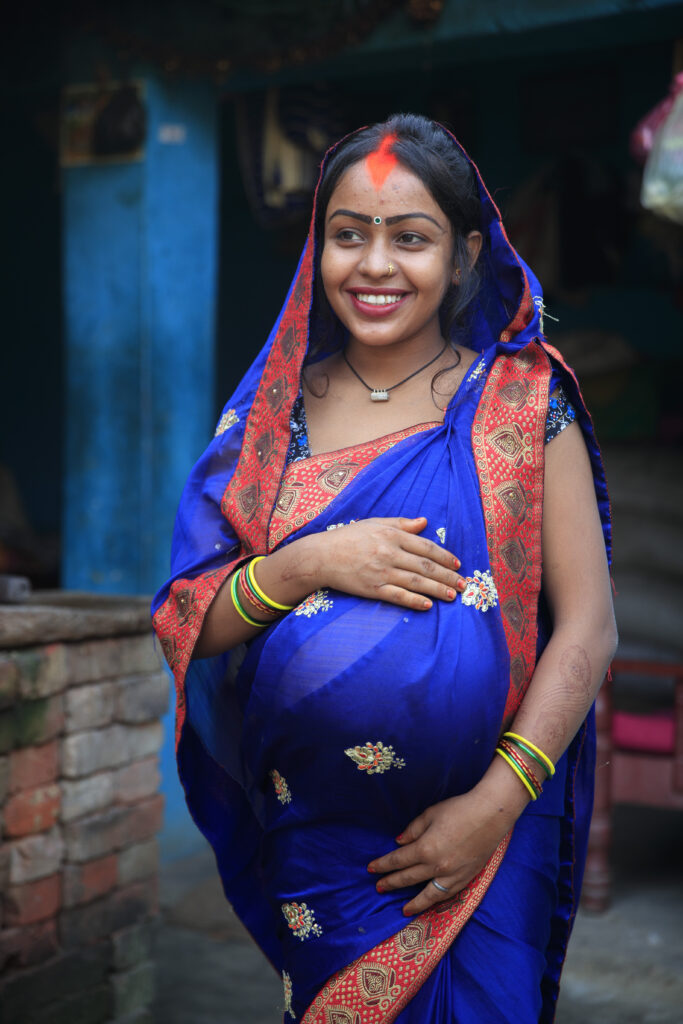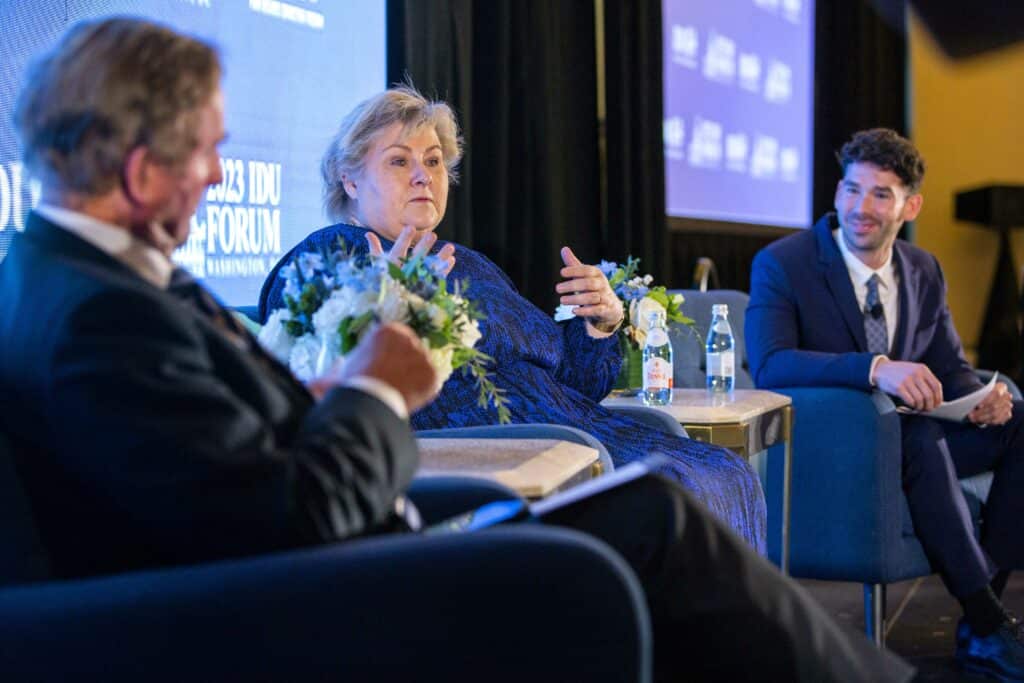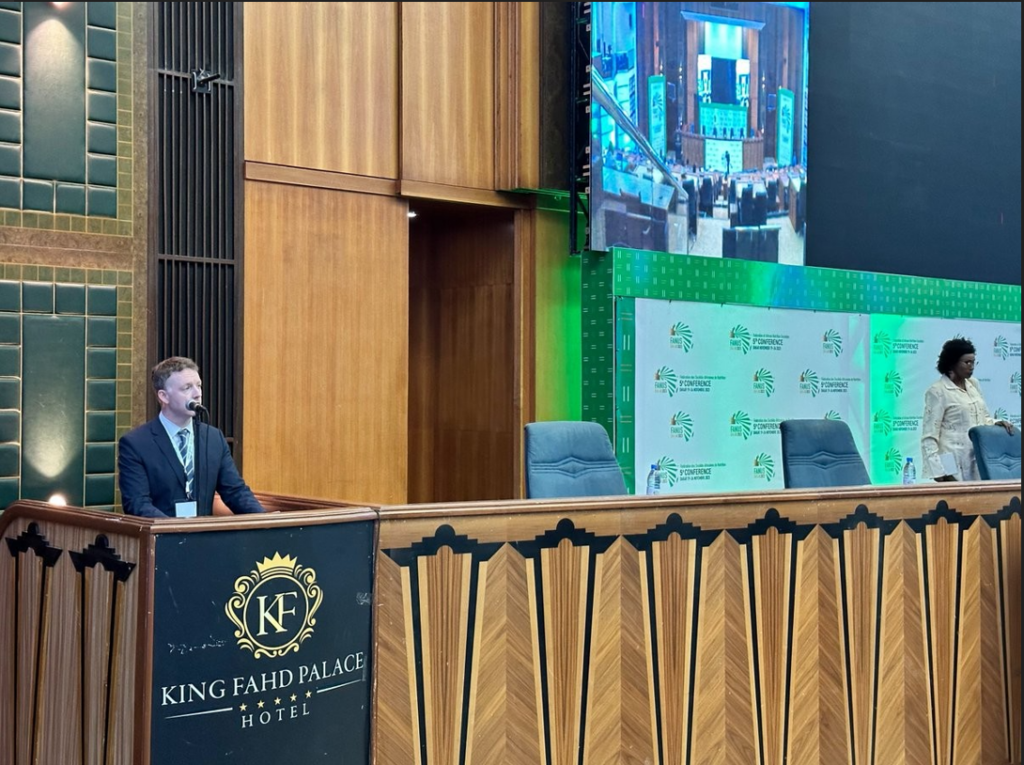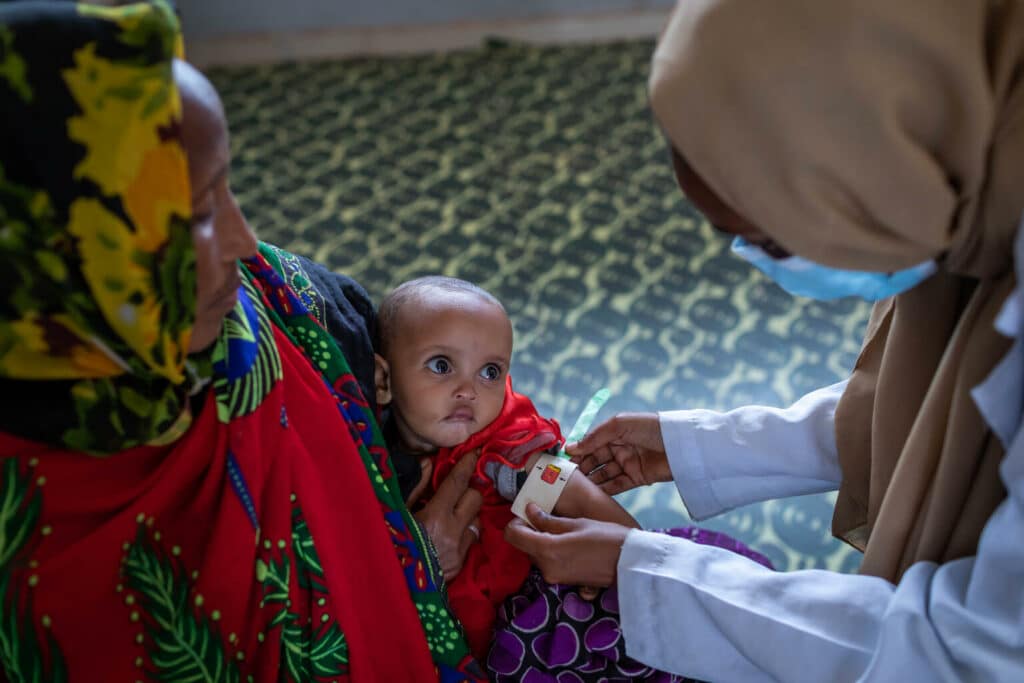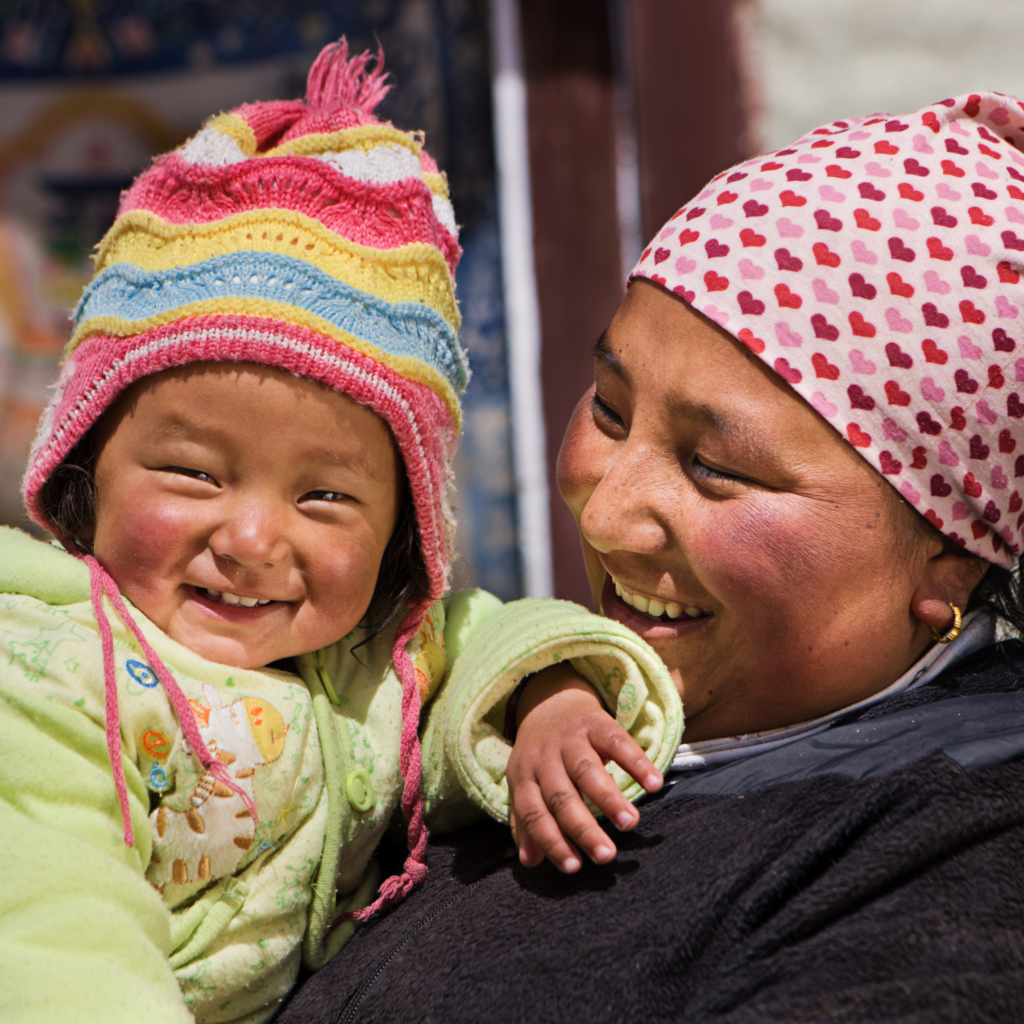On January 30, 2024, the Senegalese Ministry of Health and Social Action, the Eleanor Crook Foundation (ECF), and Helen Keller Intl held an event in Dakar, Senegal to launch a new $4 million initiative to significantly reduce child malnutrition in Senegal. ECF has provided catalytic funding for this four-year project, which is titled “Strengthening Services for the Management of Acute Malnutrition in Senegal.” The government of Senegal will lead the program, and Helen Keller, in coordination with other partners, will support it as a chief implementing partner.
The launch event included speakers from Senegal’s Department of Maternal and Child Health (DSME), Helen Keller, USAID, UNICEF, Action Against Hunger, and ECF, and additional participants including regional health directors, academics, civil society organizations, and development partners.
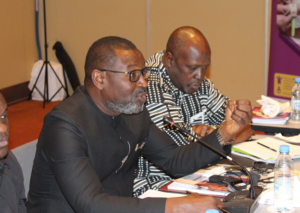
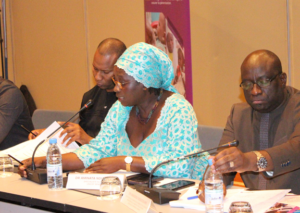
Dr. Maty Diagne Camara (DSME) and Maguette Beye (Helen Keller) provided participants with an overview of the malnutrition situation in Senegal, as well as evidence from an innovative pilot program to address child wasting, called PECMAS_com. Dr. Maty and Ms. Beye also described how this initiative will help to scale up coverage of wasting treatment in priority regions and nationwide. Wasting rates have remained high in Senegal for many years, and health services reach fewer than half of children suffering from wasting with appropriate treatment. This challenging situation is due in part because many families live far from health facilities where their children could receive treatment for wasting – which means that in order to access treatment, caregivers must travel long distances with their wasted children on a routine basis.
Helen Keller piloted the PECMAS_com program, which is a community-based approach to wasting treatment that brings treatment closer to families by empowering community health workers to treat children locally in their communities. ECF funded the evaluation of the pilot, and the evaluation showed that this approach raised coverage rates by 20 percentage points.
While the pilot indicated some challenges with program quality that warrant further consideration, the overall result was positive. With the support of this new project, Senegal’s Ministry of Health is committed to scaling up this promising approach nationwide, starting with a goal of doubling treatment coverage rates in five high-priority regions.
Regional health directors and other audience members engaged the speakers in a robust discussion of the proposed initiative and provided valuable perspectives on health systems as well as workforce and supply chain challenges that the government and partners will need to overcome to meet the level of ambition laid out by the Ministry. Representatives from the Ministry and Helen Keller welcomed both the feedback and the commitment of the regional health directors to work with them to adapt and strengthen the program during implementation. The comments of Dr. Dieng, Diourbel health regional director, were representative of the positive constructive spirit: “We believe in the important goals laid out by the Ministry. Taking the words from the page and turning them into implementation and sustainability will be challenging. But we can work together with the Ministry and [Helen Keller] to overcome these challenges and expand, while improving quality simultaneously.”
The event concluded with an impressive display of solidarity in support of this initiative from a panel of key partners moderated by Shawn Baker, Chief Program Officer of Helen Keller. Each representative explained how their institution can support this important national effort.
Dr. Amadou Doucoure (DSME) discussed how DSME would work to bring all partners together by saying, “This is a [workshop] rich with ideas. I’m committed to supporting this initiative…. The elaboration of guidelines and updating of guidelines – each partner that supports the government – there is a need to harmonize [as we move forward]. The Ministry is in the fight against malnutrition, [and] we [have] assured the work with five entities of the Ministry to implement this strategy.”
Dr. Elhadji Dial of USAID described USAID’s commitment to nutrition, including the regions where they are already implementing PECMAS_ com, and how they are working to support the initiative through the procural of nutrition equipment, as well as by empowering local organizations. Dr. Yahya Gnokane of Action Against Hunger (ACF) shared ACF’s experience of being one of the first organizations to pilot PECMAS_com, citing that this approach is up to two times cheaper compared to the standard of care offered by health facilities. And Dr. Aminata Ndiaye Coly, Nutritionist Specialist at UNICEF, provided insight on the challenges and opportunities of RUTF procurement and the national supply chain management system, and the importance of maintaining program quality throughout the scale-up process.
On January 30, 2024, the Senegalese Ministry of Health and Social Action, the Eleanor Crook Foundation (ECF), and Helen Keller Intl held an event in Dakar, Senegal to launch a new $4 million initiative to significantly reduce child malnutrition in Senegal. ECF has provided catalytic funding for this four-year project, which is titled “Strengthening Services for the Management of Acute Malnutrition in Senegal.” The government of Senegal will lead the program, and Helen Keller, in coordination with other partners, will support it as a chief implementing partner.
The launch event included speakers from Senegal’s Department of Maternal and Child Health (DSME), Helen Keller, USAID, UNICEF, Action Against Hunger, and ECF, and additional participants including regional health directors, academics, civil society organizations, and development partners.
Dr. Jack Clift, Senior Director of Policy and Research at ECF, shared the Foundation’s sincere appreciation for the leadership of the Ministry, the technical partnership provided by Helen Keller, and the positive collaborative energy from all the attendees, before delivering a final call to action: “Together, we have the opportunity to transform the landscape of malnutrition treatment in Senegal and create lasting positive change for generations to come. The time for action is now.”
Following the successful launch event, the project is set to run for four years, aiming to directly reach over 80,000 children with wasting treatment in target regions that would otherwise have gone untreated, while also supporting the Ministry’s efforts to mobilize resources and coordinate implementation for a nationwide expansion.
